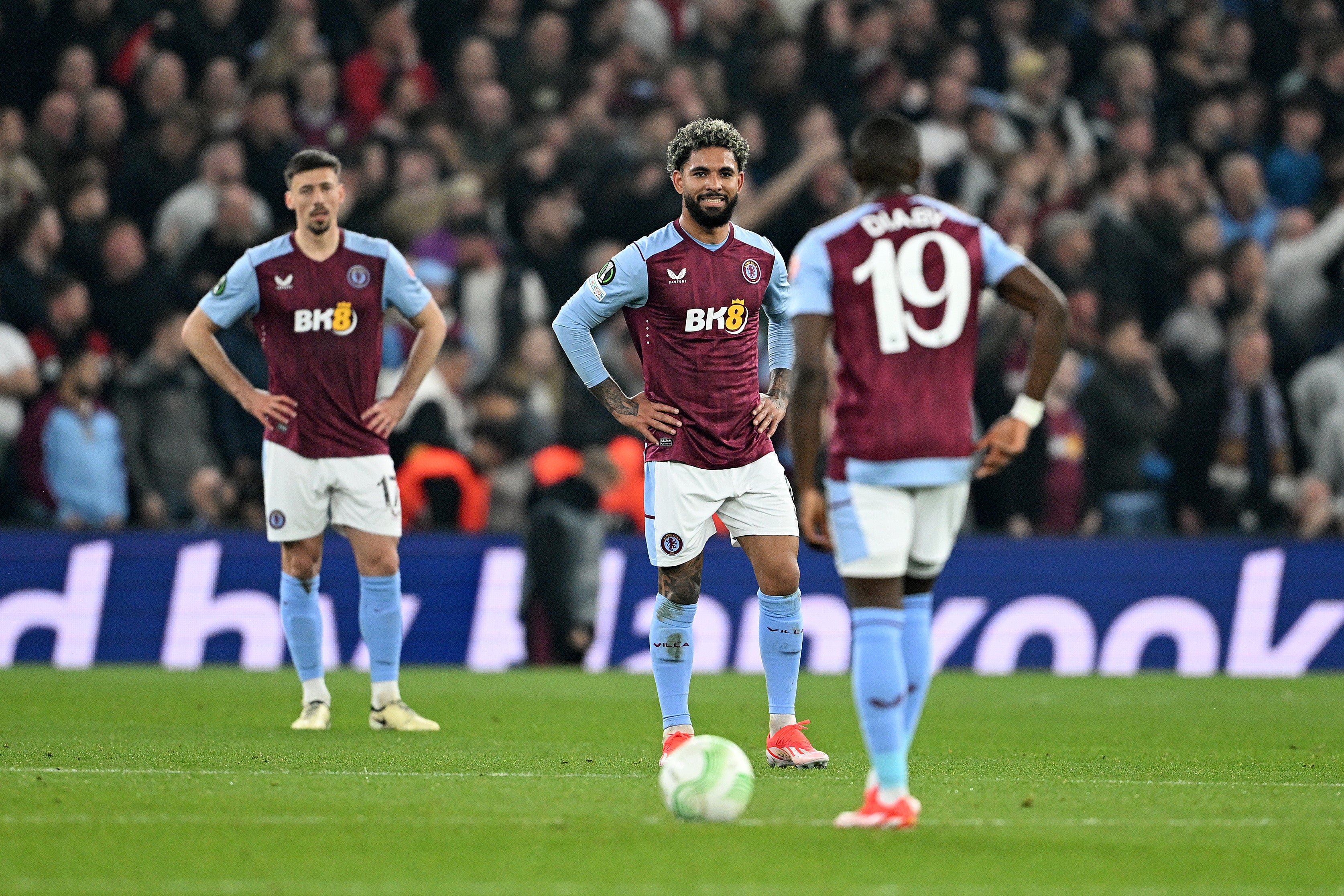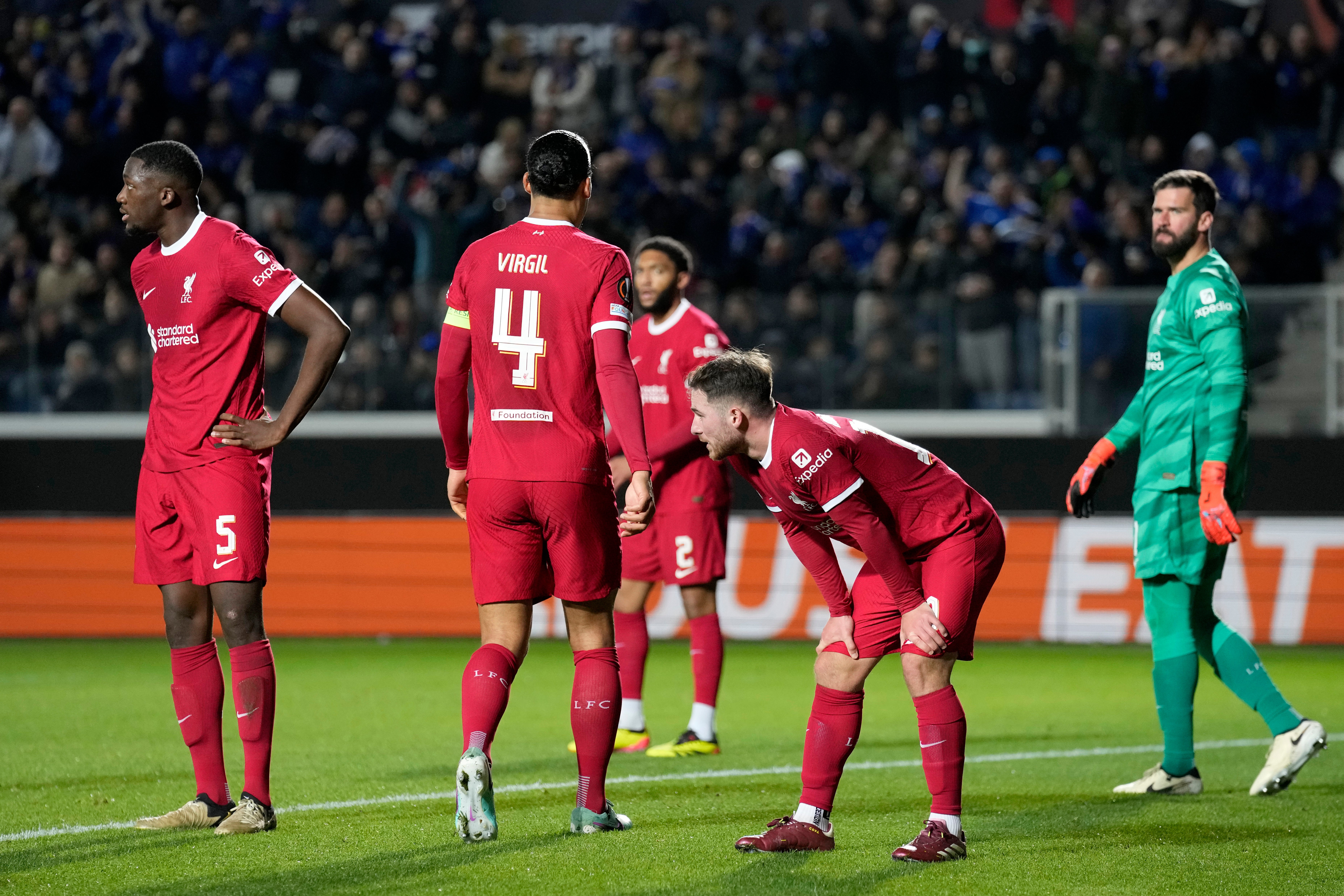Aston Villa’s failure exposes painful truth for Premier League clubs in Europe
The Premier League clubs did not live up to expectations in Europe’s competitions this year

Your support helps us to tell the story
From reproductive rights to climate change to Big Tech, The Independent is on the ground when the story is developing. Whether it's investigating the financials of Elon Musk's pro-Trump PAC or producing our latest documentary, 'The A Word', which shines a light on the American women fighting for reproductive rights, we know how important it is to parse out the facts from the messaging.
At such a critical moment in US history, we need reporters on the ground. Your donation allows us to keep sending journalists to speak to both sides of the story.
The Independent is trusted by Americans across the entire political spectrum. And unlike many other quality news outlets, we choose not to lock Americans out of our reporting and analysis with paywalls. We believe quality journalism should be available to everyone, paid for by those who can afford it.
Your support makes all the difference.Even the consolation prize could elude the world’s best league. Or its most watched and most expensive, anyway. Even as other English teams beat an inglorious retreat from Europe, there was long an expectation that Aston Villa could claim the Conference League, as though the competition may develop into a Premier League fiefdom.
If Olympiacos had other ideas, winning 4-2 at Villa Park to illustrate that high-quality teams can be found at the business end of any continental competition and that, for all the differences in domestic leagues, their revenue and personnel, there can be something compelling and even about European knockout ties, they are 90 minutes away from completing a year of English underachievement in Europe.
Some statistical proof came on Wednesday when Borussia Dortmund’s victory over Paris Saint-Germain meant that the Bundesliga, like Serie A, has earned a fifth place in next season’s Champions League; if the assumption was that it was an inevitability the Premier League would get it, it has been dashed. There were other indications: for the first time since 2012-13, only two English clubs qualified for the knockout stages of the Champions League. For the first since 2013-14, there were no semi-finalists from the Premier League in either of the two major continental competitions.
There are degrees of failure, some of them chastening, hubristic and embarrassing, some more understandable and hinging on fine margins. Some were restricted to one evening, some spread over a continental campaign. The common denominator is elimination: suffered by seven clubs and, barring a terrific fightback in Athens next week, faced by an eighth. For the world’s richest league, there may be a different kind of Premier League tax: the injuries and fatigue caused by its demanding nature could have hampered them in Europe. But given the wealth its clubs enjoy, and which the rest of Europe envies, far more was expected, some anticipated an English clean sweep of the trophies.

And if drawing sweeping conclusions can ignore the chance that, with a more conventional penalty by Bernardo Silva in the shootout, Manchester City might still be in the Champions League and favourites to win it, moments can assume the status of turning points. Penalties can be a theme: the spot kick Douglas Luiz conceded and the one he missed for Villa against Olympiacos, for instance, or the 98th minute one controversially given against Newcastle to deny them victory over Paris Saint-Germain in France. There was some misfortune in Marcus Rashford’s red card against FC Copenhagen when Manchester United were 2-0 up, even though it was the correct decision. There was Mohamed Salah’s miss away against Atalanta when he could have put Liverpool 2-0 ahead as they sought to cancel out a 3-0 deficit.
But collectively the Premier League has punched well below its weight. Manchester United are the culprits in chief, landing in what, Bayern Munich apart, looked perhaps the Champions League’s weakest pool and yet contriving to prop it up. It was arguably their worst-ever European campaign. Liverpool produced one of their poorest-ever continental results when beaten 3-0 by Atalanta at Anfield. For Villa against Olympiacos, as the captain John McGinn said: “Everything that could have gone wrong did.”
Other losses were more excusable. West Ham went out to perhaps Europe’s outstanding team this season, the unbeaten Bayer Leverkusen. Newcastle failed to qualify from the Champions League’s group of death and the sides who did are now contesting a semi-final. The manner of Brighton’s 4-0 thrashing by Roma was humbling but, historically, such contrasting clubs were on different planes. Arsenal were a little below par in their underwhelming exit to Bayern Munich, but they departed to one of the European superpowers. City could feel they were the better team over two legs against Real Madrid.

And yet English teams barely beat the best in the Champions League. There were wins over second-tier teams such as Sevilla, Porto, PSV Eindhoven and RB Leipzig but in 12 matches against Dortmund, Bayern, Real, PSG and AC Milan, they won just one: Newcastle’s 4-1 demolition of Kylian Mbappe and co.
So it is worth remembering that six of the 12 founder members of the Super League came from the Premier League. Two of them, Chelsea and Tottenham, did not even qualify for Europe this season. A third, Manchester United, won a lone game in it. They set the tone for a season when English clubs have lost games to FC Copenhagen, Galatasaray, Olympiacos, AEK Athens, Atalanta, Roma, Porto, Bayer Leverkusen, Freiburg, Toulouse, Lens, Lille, Legia Warsaw and Union Saint-Gilloise, none of whom seemed invited to that private party.
But the Super League was a treasonous attempt to subvert the principles of competition. Places in European semi-finals and finals have to be earned. Some of the Premier League clubs might have been unfortunate. Some have got what they deserved. It has amounted to a wretched season in Europe for England, though.
Join our commenting forum
Join thought-provoking conversations, follow other Independent readers and see their replies
Comments